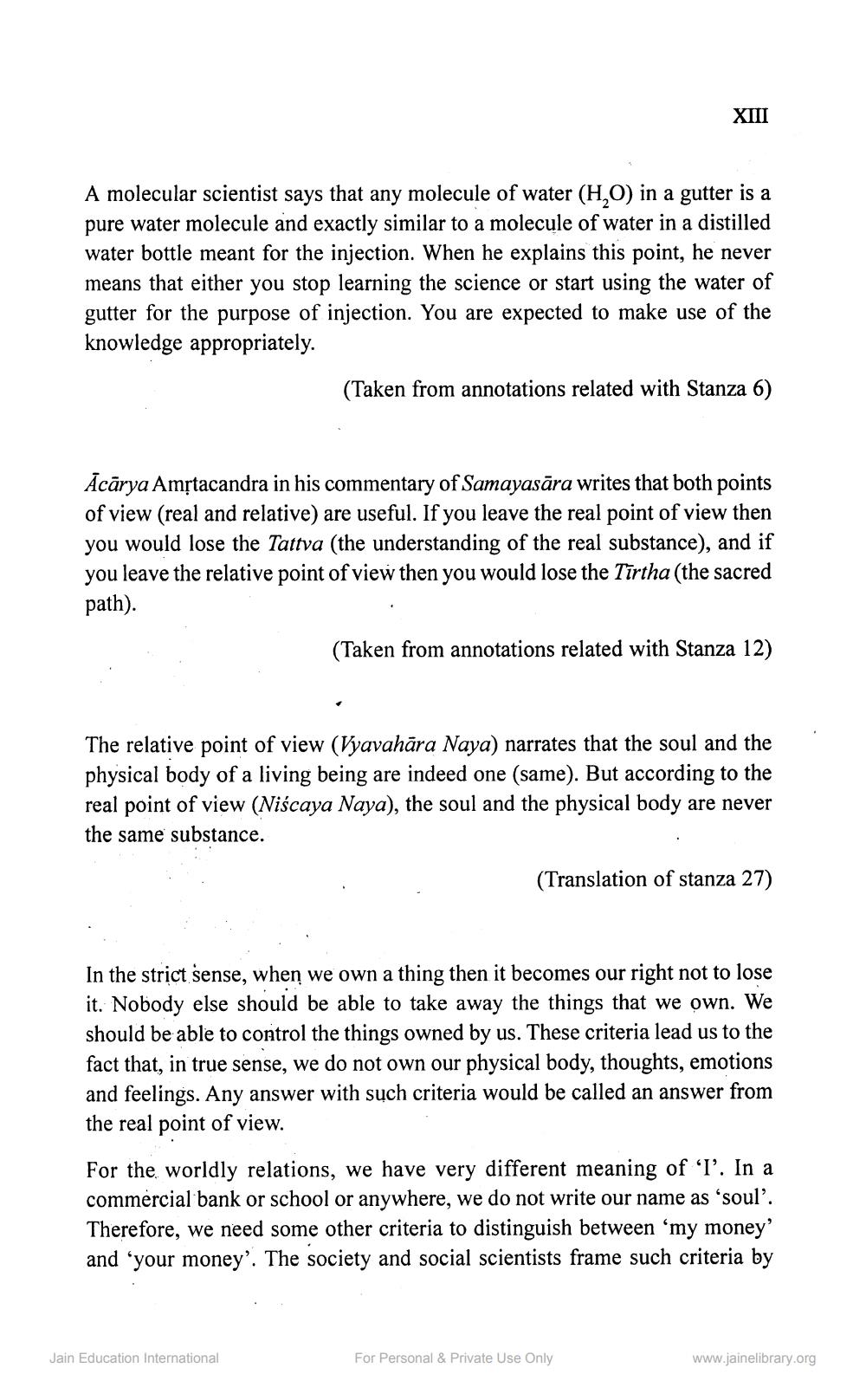________________
XIII
A molecular scientist says that any molecule of water (H,O) in a gutter is a pure water molecule and exactly similar to a molecule of water in a distilled water bottle meant for the injection. When he explains this point, he never means that either you stop learning the science or start using the water of gutter for the purpose of injection. You are expected to make use of the knowledge appropriately.
(Taken from annotations related with Stanza 6)
Ācārya Amộtacandra in his commentary of Samayasāra writes that both points of view (real and relative) are useful. If you leave the real point of view then you would lose the Tattva (the understanding of the real substance), and if you leave the relative point of view then you would lose the Tīrtha (the sacred path).
(Taken from annotations related with Stanza 12)
The relative point of view (Vyavahāra Naya) narrates that the soul and the physical body of a living being are indeed one (same). But according to the real point of view (Niścaya Naya), the soul and the physical body are never the same substance.
(Translation of stanza 27)
In the strict sense, when we own a thing then it becomes our right not to lose it. Nobody else should be able to take away the things that we own. We should be able to control the things owned by us. These criteria lead us to the fact that, in true sense, we do not own our physical body, thoughts, emotions and feelings. Any answer with such criteria would be called an answer from the real point of view. For the worldly relations, we have very different meaning of 'l'. In a commercial bank or school or anywhere, we do not write our name as ‘soul'. Therefore, we need some other criteria to distinguish between ‘my money' and your money'. The society and social scientists frame such criteria by
Jain Education International
For Personal & Private Use Only
www.jainelibrary.org




